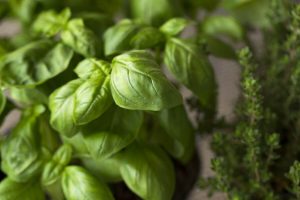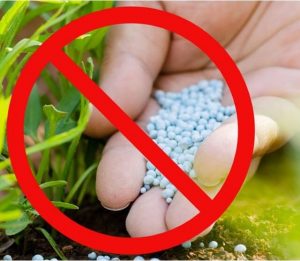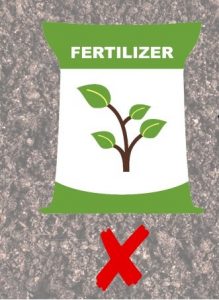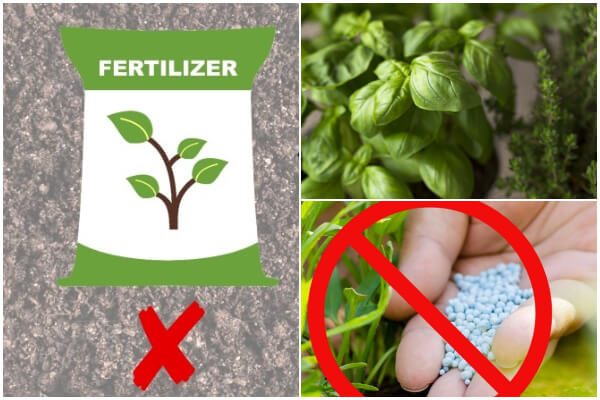Herbs are some of the easiest and most rewarding plants to grow, both indoors and outdoors. Their fresh flavors, aromatic qualities, and myriad uses in cooking and medicine make them staples in many gardens. However, one common mistake that can hinder their growth and quality is over-fertilizing. While fertilization is often beneficial for other plants, herbs thrive in lean soil conditions, and excessive feeding can do more harm than good. Here are four reasons why you should avoid fertilizing herbs, along with actionable tips for ensuring their optimal health and growth naturally.

1. Loss of Flavor and Aroma
Herbs like basil, thyme, oregano, and rosemary are prized for their strong flavors and enticing aromas. These characteristics are the result of high concentrations of essential oils produced by the plants. Over-fertilizing, however, encourages rapid, lush growth that dilutes these oils. This results in herbs that may look healthy but lack the robust taste and scent you expect.

For instance, an over-fertilized basil plant may develop large, tender leaves but with a significantly muted flavor. Similarly, rosemary grown in overly rich soil may lose its signature woody, piney aroma. Instead of relying on fertilizers, focus on cultivating herbs in nutrient-poor, well-draining soil, which naturally promotes concentrated essential oil production.
2. Increased Vulnerability to Pests and Diseases
Over-fertilizing leads to rapid growth, often producing soft, tender stems and leaves. This new growth is particularly attractive to pests like aphids, whiteflies, and spider mites. Additionally, over-fertilized soil can retain excess moisture, creating conditions ripe for fungal diseases such as root rot or powdery mildew.
By avoiding excessive fertilizer use, you’ll promote stronger, more resilient plants. Herbs that grow naturally in less nutrient-rich soil tend to develop tougher foliage and stronger cell walls, making them less susceptible to pests and pathogens.
3. Imbalanced Growth Patterns
Fertilization can disrupt the natural growth habits of herbs. Many herb species, including thyme and sage, are adapted to growing in rocky, nutrient-poor environments. Adding too much fertilizer can lead to imbalanced growth, such as leggy stems and weak roots. These plants may grow tall and spindly, making them more likely to topple over or break under their own weight.
For container-grown herbs, over-fertilization is especially problematic. In small spaces, nutrients are concentrated, which can exacerbate the issue. Instead, focus on proper pruning techniques and moderate watering to encourage compact, bushy growth that’s better suited for harvesting and use.
4. Negative Environmental Impact
Fertilizer runoff is a significant environmental concern, contributing to water pollution and harming aquatic ecosystems. Overusing fertilizers in your garden—even on a small scale—can contribute to these issues, especially if your garden is exposed to heavy rainfall. By avoiding fertilizers altogether in your herb garden, you’re making a more sustainable choice for the environment.

Opting for organic and eco-friendly gardening methods not only benefits the planet but also ensures that your herbs are safe for consumption. Synthetic fertilizers can sometimes leave harmful residues that may affect the quality of your harvest.
How to Grow Herbs Without Fertilizer
Growing herbs without fertilizer is not only possible but can also lead to healthier, more flavorful plants. By mimicking the natural conditions these plants thrive in, you can cultivate a lush herb garden that doesn’t rely on chemical or synthetic nutrients. Below are detailed, practical tips to help your herbs flourish naturally:
- Choose the Right Soil
The foundation of healthy herb growth lies in the soil. Herbs naturally prefer well-draining soil with a slightly sandy or loamy texture, which prevents waterlogging and promotes root aeration. For outdoor gardens, test your soil’s drainage by observing how quickly water soaks in after rainfall. If you’re growing herbs in containers, create a custom mix using quality potting soil blended with sand or perlite to enhance drainage.
Avoid using rich compost or manure-based soils, as their high nutrient content can overwhelm herbs. Nutrient-poor soil mimics the lean environments herbs like thyme, sage, and oregano are accustomed to in the wild, encouraging concentrated growth and aromatic foliage.
- Water Wisely
Watering is a critical aspect of herb care, and overwatering can be as damaging as over-fertilizing. Mediterranean herbs such as rosemary, thyme, and lavender are adapted to dry conditions and prefer soil that dries out between waterings. To determine when to water, check the top inch of soil; if it feels dry, it’s time to hydrate your plants.
For container-grown herbs, ensure pots have adequate drainage holes and avoid leaving excess water in saucers, which can lead to root rot. Consider mulching your herb beds with a light layer of gravel or straw to retain moisture while preventing soil compaction.
- Practice Regular Pruning
Pruning is an essential step to maintain healthy and productive herbs. Regularly trim herbs like basil, mint, and parsley to encourage bushy, compact growth. For best results, pinch off the top few leaves, as this delays flowering and keeps the plant focused on producing flavorful foliage.
Pruning not only shapes your herbs but also prevents them from becoming woody or leggy over time. Use clean, sharp scissors or pruning shears to avoid damaging the plant. As a bonus, the clippings can be used immediately in your kitchen!
- Rely on Companion Planting
Companion planting is a natural way to support your herbs without adding artificial fertilizers. This method involves planting different species together to mutually benefit each other. For example, marigolds can deter common pests, while aromatic herbs like basil can enhance the flavor and growth of neighboring tomatoes.
Other effective companions include planting dill near cucumbers or chives around carrots to repel pests. By diversifying your garden, you create a self-sustaining ecosystem where each plant contributes to the others’ health, reducing the need for external inputs.
- Rotate Your Herbs
Crop rotation isn’t just for large-scale farming—it’s equally effective in small herb gardens. Moving your herbs to different spots in your garden each growing season prevents soil depletion and minimizes the risk of pests and diseases that can linger in the soil.
For container gardeners, rotation can mean repotting herbs in fresh soil every year or alternating the types of plants grown in each pot. This simple practice mimics natural growing conditions and ensures that your herbs don’t overuse the same nutrients from the soil.
Herbs are naturally low-maintenance plants that thrive in minimalistic conditions. By understanding the negative effects of over-fertilization and adopting simple, sustainable gardening practices, you can grow flavorful, aromatic herbs that enhance your meals and beautify your garden. Remember, when it comes to herbs, less is truly more. Keep their care simple, and your efforts will be rewarded with a bountiful, high-quality harvest.

